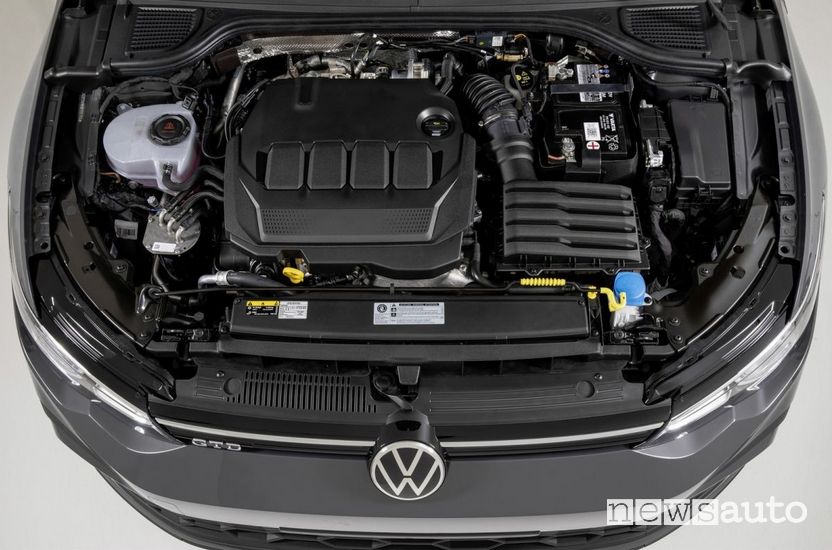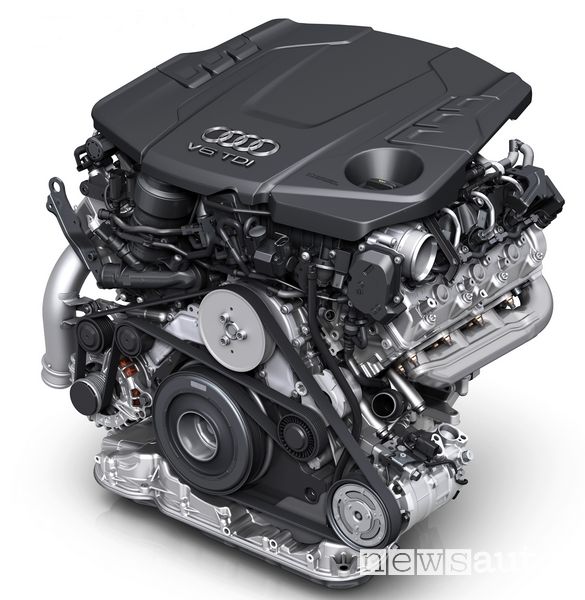The engines and the diesel car they can still have their say in this difficult phase energy transition given their great thermal efficiency. Many wonder when diesel engines will disappear? What will happen to diesel engines? It will be possible to extend his life with the HVO (hydrotrated vegetable oil), synthetic paraffinic fuel? Let’s find out what HVO is, the fuel that can be added to diesel or used 100% pure.
Where to buy HVO (ENI and Q8)
HVO is available at Eni and Q8 service stations. Eni was the first oil company in Italy to make HVO available, marketing it under the name “HVOlution“. To date, biofuel is present in 150 Eni service stations distributed across the national territory. Eni had launched a promotion to encourage the use of HVO with a price 10 cents per liter lower than traditional diesel. At some Q8 service stations HVO is distributed under the name “HVO+“, in some of its service stations.
HVO: what it is and how it is produced
HVO (Hydrotreated Vegetable Oil) is an alternative biofuel to traditional diesel produced from renewable sources through a hydrogenation process of vegetable oils (such as canola and soybean), animal fats, non-edible oils, waste animal fats or used cooking oil. Waste materials such ascooking oil used by the food industry or agricultural residues they are the most used for the production of HVO.
How HVO is produced
HVO is produced through i biological residues or waste and vegetable oils that are converted into hydrocarbons through a reaction with hydrogen. Production occurs through a two-step process called hydrotreatment through which the triglycerides present in vegetable oils are converted into hydrocarbons similar to fossil diesel.
PHASE 1 – Saturation with hydrogen, the raw materials, are reacted with hydrogen at high temperatures (over 300°C). This process eliminates oxygen and unsaturated bonds, making the molecules more stable.
PHASE 2 – Chemical modifications, in the second step, the chemical structure of the compound is further modified to obtain the desired properties of the final product. Incorporating the‘hydrogen (hydrogenation), the oils are converted into aliphatic hydrocarbonssuitable for use in Diesel engines.
Biofuels such as HVO are already available on the market and their share is expected to grow within the next few years.
To identify the fuels regulated by legislation EN 15940 the expression is used XTL (X-to-Liquid), with the “X” to indicate the original component. The distributors that supply these fuels are marked with this symbolreplicated by a specific adhesive in correspondence with the fuel cap of compatible Audi models.
HVO is a BTL type fuel (biomass from liquid) which allows a rreduction of CO2 emissions between 70 and 95% compared to traditional fossil diesel. In addition to the BTL system, there are other methods of producing synthetic diesel fuels: for example GTL (from gas to liquid) and the PTL (from energy to liquid). The latter can be achieved sustainably from renewable electricity, water and CO2 from the atmosphere.
Here are some of the main advantages of HVO:
- Environmental sustainability: HVO is considered a greener fuel than traditional fossil fuels because it reduces emissions of greenhouse gases and other air pollutants.
- Superior Quality: compared to traditional biodiesel (FAME, Fatty Acid Methyl Ester), HVO has greater oxidation stability, a higher flash point and better performance at low temperatures.
- Compatibility: Can be used in diesel engines without the need for significant modifications. It is often mixed with fossil diesel, but can also be used pure (HVO100).
- Production Sources: HVO can be produced from a variety of renewable sources, including vegetable oils (such as palm oil, rapeseed oil) and animal fats, as well as waste oils and residual fats.
- Reduction of Emissions: Using HVO, emissions of particulate matter, nitrogen oxides (NOx), carbon monoxide (CO), and unburned hydrocarbons are generally lower than with traditional diesel fuels. Only for CO2 the reduction is of the order of 70-95%, compared to conventional diesel.
In summary, HVO represents a cleaner and more sustainable alternative to fossil diesel, contributing to the reduction of the environmental impact of transport and the transition towards renewable energy.
HVO in TDI diesel engines
Diesel engines New generation Euro 6 have already achieved a low level of emissions, which can be further lowered through the use of synthetic fuels. Volkswagen had already approved the use of paraffinic fuels for your models equipped with latest generation TDI diesel engines.

All Volkswagen models equipped with 4-cylinder TDI diesel engines delivered from the end of June 2021 are approved for use with paraffinic diesel fuelsaccording to the European standard EN 15940.
Biodiesel on Audi and Volkswagen engines, models
In addition to Volkswagen cars, renewable diesel can be used in Audi models. In fact, all Audi V6 diesel engines with power up to 286 HP belong to the ranges A4, A5, A6, A7, A8, Q7 and Q8 produced from mid-February 2022 can be refueled with HVO fuel. Compatibility for the Audi Q5 3.0 TDI will arrive at the beginning of March and subsequently it will be the turn of the 245 HP step of the Audi A6 allroad quattro.

As for the Volkswagen Brand, the SUV Touareg in the 231 HP configuration it can use sustainable diesel. In Europe, HVO is also compatible with 4-cylinder diesel engines Audi A3, Audi Q2 and Audi Q3 produced since June 2021. Regarding models based on the MLB platform, i four-cylinder TDI of the A4, A5, A6, A7 and Q5 ranges can be refueled with HVO since the middle of last year in Sweden, Denmark And Italy.
Prices and excise duties on HVO in Italy, France and other European countries
In Italy the HVO does not have any tax breaks, and currently does subject to the same excise tax rate as traditional dieselequal to €0.624/litre. Discussions are underway for the introduction of one specific excise duty reduction for HVO, with the aim of encouraging its use and encouraging the transition towards more sustainable transport. In France HVO benefits from areduced excise duty rate compared to traditional diesel. The amount of the reduction varies depending on the type of HVO, for HVOr pure (from vegetable oils) the excise duty is reduced to €0.14/litre while theHVO from mixture with mineral oils (up to 30%) is equal to €0.40/litre. In addition to excise duties, one is also applied in France additional carbon taxation for fuels, which includes HVO. Its amount depends on the carbon content of the fuel.
Read also:
→ E-fuel, what are synthetic fuels
→ Energy transition: where are we at?
→ What do you think? Drop by discussions on the FORUM!
#HVO #alternative #fuel #diesel #diesel #engines